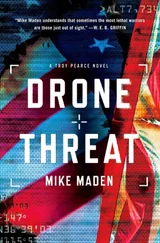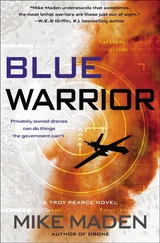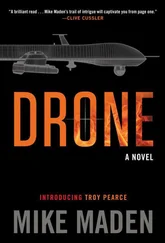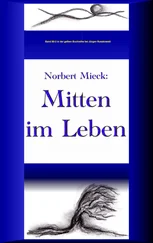 46
46 
Adrar Province
Southwestern Algeria
10 May
They rode until late evening, arriving at a wadi to rest and feed the camels. The sun had long before dropped below the jagged horizon of the Adrar miles behind them. The flat sands shimmered like a silvery sea beneath a high, blazing moon.
Balla stood watch in the distance over the camp while Moctar prayed the last prayer of the day. The camels stretched their long necks, grunting as they munched on the salty green leaves of the tamarisk trees. There was no water, but the camels had drunk their fill before they’d arrived at the Adrar. The Nigerien camel driver was baking bread in a shallow desert oven he’d dug with a trenching tool. That left Pearce, Mossa, Early, and Cella to sit and relax around the small campfire where the teapot was heating up. It was still near eighty degrees Fahrenheit, but that was thirty degrees less than the hottest part of the day, so the evening felt almost cool.
Mossa had unwrapped the tagelmust from his face and smoked a cigarette. He sat cross-legged, sharpening the takouba resting on his knees with a whetstone. The traditional Tuareg sword was about three feet long and almost two inches wide at the base near the leather-wrapped hilt. The sound of the stone scraping on the ancient steel was the only sound in the air, save for the munching jaws of the camels.
“I want to thank you for saving my life today, Mr. Pearce. Twice.”
“I was just trying to save my own neck. And please, call me Troy.”
Mossa held his takouba up, examining the fine edge he’d just put on it. “You have amazing weapons in your arsenal. Did you invent them yourself?”
“No. I have a research team that sometimes creates new systems, but mostly we take existing technologies and modify or combine them. The grenade launcher you saw me use in the village was off-the-shelf technology, and so were the MetaPro glasses. We just wrote a piece of targeting software to link the two, and to make them function better together.”
“You saved many lives today,” Mossa said. He laid the blade back down across his knees, put the whetstone away.
“And took many more,” Cella added.
“Hardly seems kosher,” Early said. “All this new technology has too many advantages over us mere mortals. Might even make wars obsolete someday.” Early recalled the slaughter at the village, but he’d seen plenty of other examples of technology-induced carnage on too many other battlefields.
“From your lips to God’s ears,” Cella said. “It can’t happen soon enough.”
“Your machines will change wars, but not the men who fight them. There will always be wars, until there are no men,” Mossa said. “When all men are dead, then their machines will still keep fighting for them, because they will have been programmed by the men who made them.”
“It’s Terminator and Skynet,” Early mused.
“I loved that movie,” Mossa said.
Early burst out laughing. Cella and Pearce did, too, infected by Early’s loss of control.
“I said something funny?” Mossa said.
When Early finally recovered, he wiped the tears from his eyes. “No, I’m sorry. I meant no offense. But you look like an ancient warrior from the distant past. The thought of you sitting in a movie theater with your sword, watching a futuristic sci-fi movie, well, it just seemed funny.”
“I watched it on a DVD, actually. At my son’s home in Tripoli, years ago.” Mossa’s eyes misted into a memory. Cella took one of his hands in hers, squeezed it. The others stared into the crackling fire.
Pearce wanted to know more about Cella’s husband. How they met, how he died, and how Cella of all people would be caught up in a genocidal war like this. But now was not the time.
Mossa returned to the present, to his guests. “You two met in your war, yes?”
Pearce nodded.
“In Afghanistan, or Iraq?”
“Iraq,” Early blurted after an uncomfortable silence. “A joint mission, helping the Kurds in the north.”
“You were both CIA?”
“Me? Hell no. U.S. Army Ranger.” Early threw a thumb at Pearce. “He was the spook.”
“A spy. Interesting. I don’t think of spies as fighters.” Mossa flicked his cigarette into the fire.
“I was with the Special Operations Group, part of the CIA’s Special Activities Division. Sort of like their own little army.”
Mossa brightened. “So you were a soldier?”
“Yes.”
“But not now?”
“No.”
“And yet here you are, fighting.”
“That’s different.” Pearce pounded Early on the shoulder. “I came for this knucklehead. But now, no more wars.”
“What did you learn about war in Iraq?”
“He also fought in Afghanistan,” Cella said. “That is where we met. A long time ago.”
“What did I learn? I learned that war is too important to be left to the politicians.”
“And yet they are the ones who want them. But it has always been that way. What else?”
“I know that I fought with good men, mostly.” Thoughts of Annie washed over Pearce. “And women.”
“Women fighters?” Mossa was incredulous. “What a waste.”
“Yes, a few women back then. More now, these days.”
“Why did you fight in Iraq?”
“For my country.”
“What changed?”
“What do you mean?”
“Why did you stop fighting? Did you stop being an American?”
“The war was voluntary. Most Americans didn’t fight in the war. Almost none of the politicians did—neither did their children.”
“You got that damn straight,” Early said. His face soured. “Funny how the guys that never fought are the first to want to fight.”
“That is true everywhere,” Cella said. “Politicians want the votes. They get votes when they bomb other people.”
“We call them ‘chicken hawks’ back home,” Early said.
Mossa lit another cigarette. Pointed at Pearce. “But I asked about you, not about the chickens. Why did you stop fighting?”
“We started two wars we didn’t know how to finish. Too many people I knew got killed waiting for my government to figure that out.”
“We have a saying: ‘It’s easier to fall into a well than to climb out of one.’”
“We jumped into two of them,” Early said. “Now look at them, now that we’re gone.”
“But you had the best weapons. Did your technology fail you?” Mossa asked.
Pearce shook his head. “No. The technology worked fine. We killed many, many more of them than they killed of us.”
“And yet you are the ones who quit the war. You, yourself, left. So your technology did fail.” Mossa pointed at Moctar, head devoutly touching his prayer rug. Mossa whispered. “Moctar loves his people, but he loves Allah even more. Such men are more dangerous than drones.”
“Even to you?” Pearce asked.
“Yes. Even to me. He is al-Qaeda Sahara.”
“What?” Early couldn’t believe it. “Then why is he here?”
“Keep your friends close and your enemies closer.” Mossa winked. “He will only put a bullet in me if he is ordered to. He loves me like a father, and his people. He is a good man, as well as devout. Besides, even the prophet Jesus had his Judas, did he not? Not that I am a prophet or even the son of a prophet.”
“The muj always knew that they would win simply by not losing,” Pearce said, using the pejorative slang word for mujahideen . “They were willing to die by the tens of thousands. They bought time with their blood. But I agree. Technology is never a substitute for the will to win.”
Читать дальше
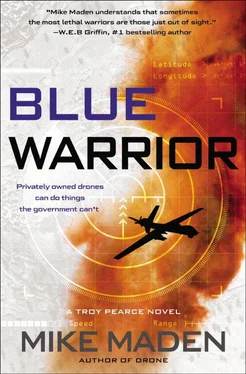
 46
46 
